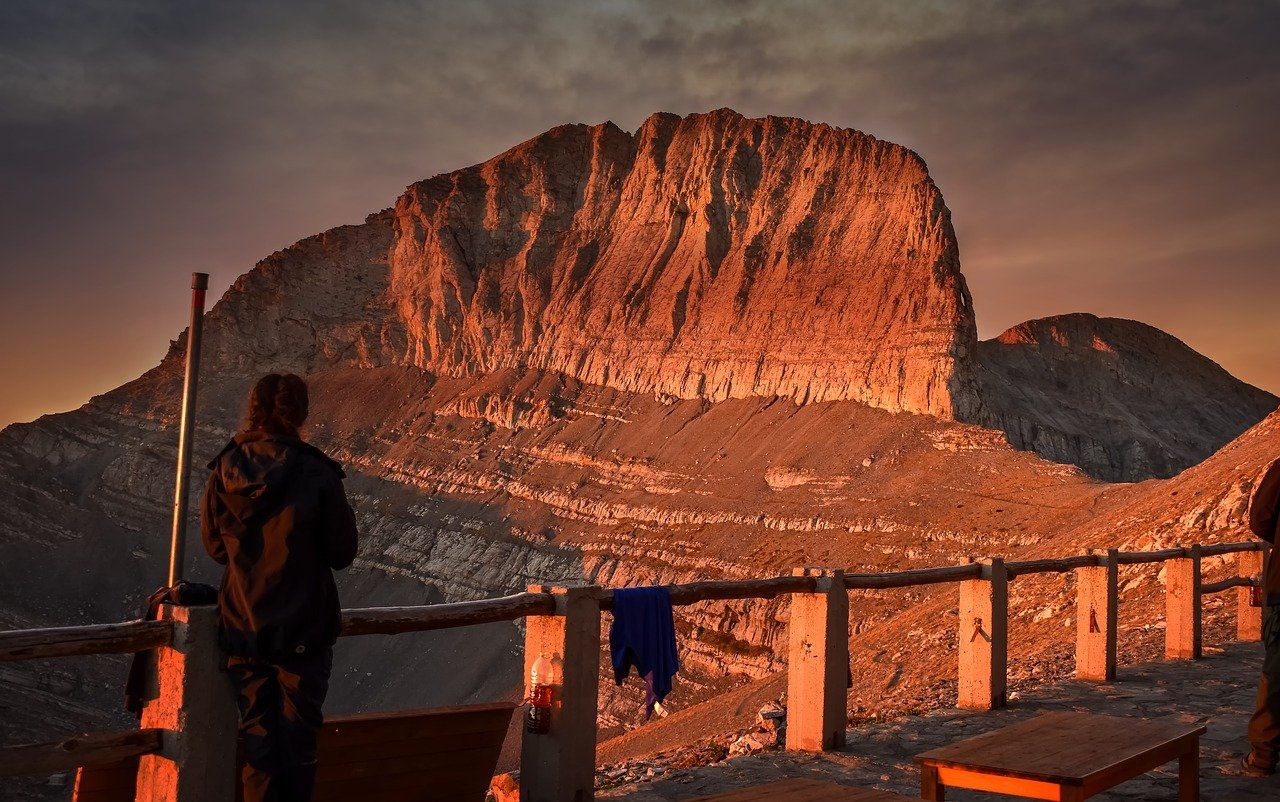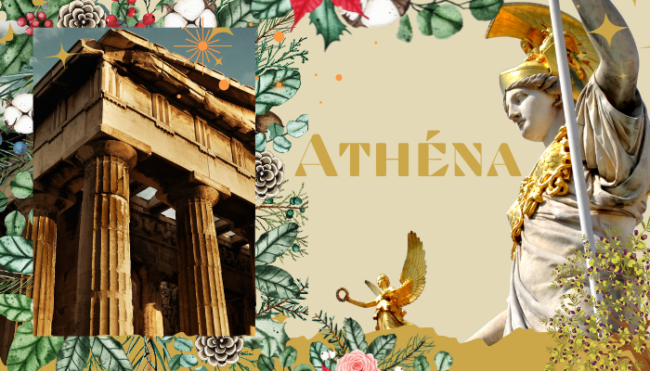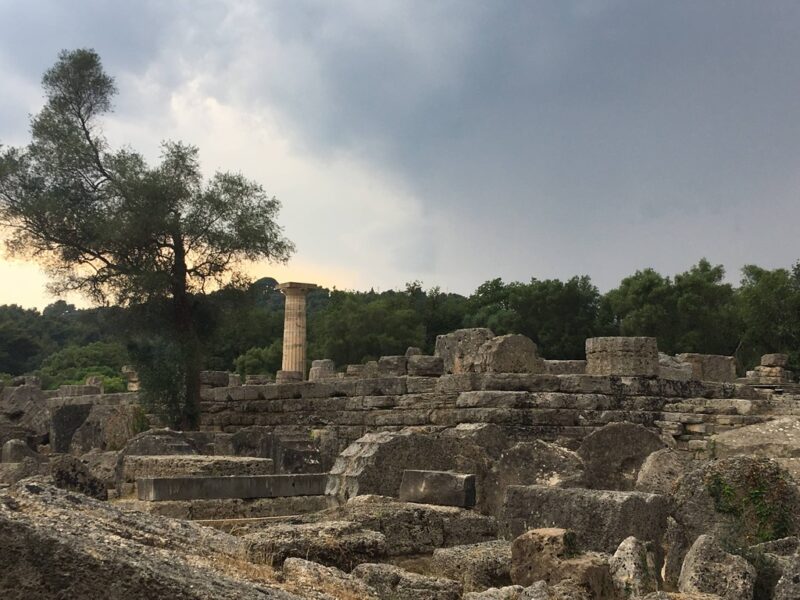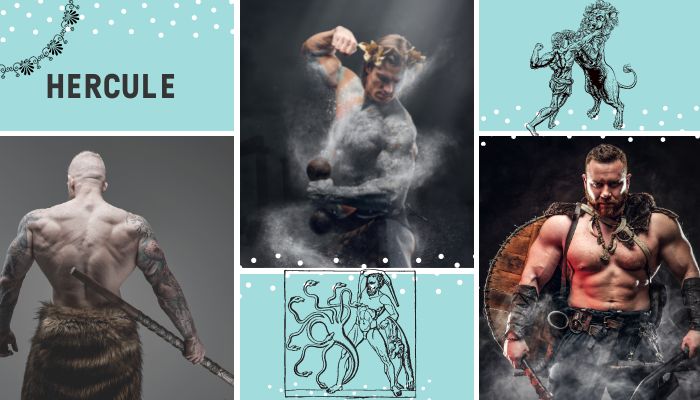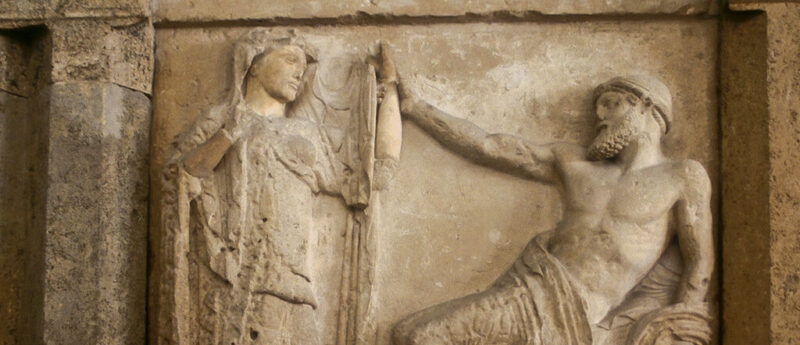Greek mythology, as its name suggests, is the set of myths and beliefs on which Ancient Greece was built.
To help you better understand some of the sites and museums in Greece, Mania F, a trained archaeologist, explains in this article the birth of Greek mythology.
When did Greek mythology begin?
As is the case in almost all human societies, the ancient Greeks believed that their lives were dominated by forces beyond their control. They made efforts to adapt to them and, if possible, ask for their favor and protection.
The first evidence of the pantheon of Olympian gods, who were to predominate throughout antiquity, can be found on Linear B writing tablets from the Mycenaean period (1650 to 1100 BC).
Alongside the great gods, the majority of whom controlled natural phenomena, there was a multitude of lesser deities, demigods and heroes.
The Greeks had created a largely polytheistic religion.
Mythology in writing: Homer and Hesiod
The two most important sources for knowledge of Greek mythology are Hesiod and Homer.
Hesiod (7th c. BC), in his book “The Theogony”, describes how the gods were created.
Homer, in his two sagas “The Iliad” and “The Odyssey”, provides valuable information on the gods who inhabited Mount Olympus.
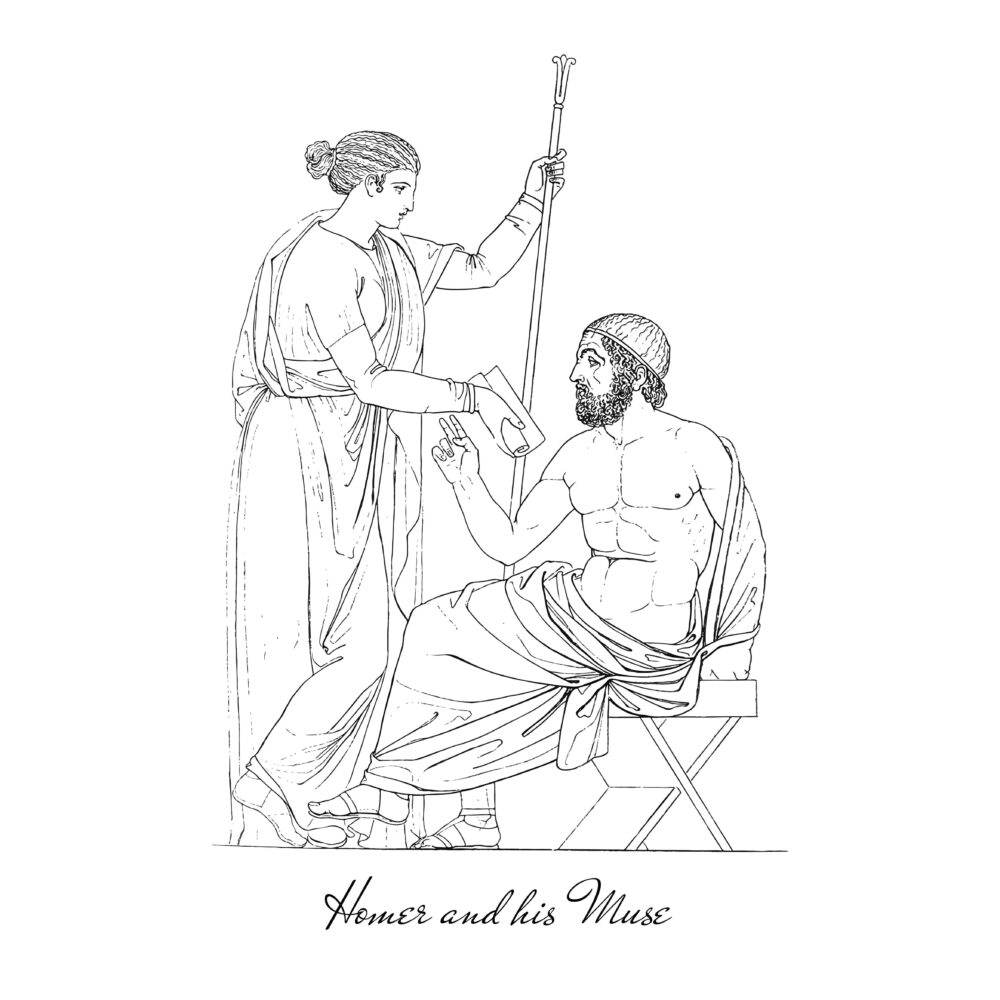
The works of these two poets are above all literary, and the imaginary element is everywhere present.
Nevertheless, their texts were landmarks for the Greeks for centuries, providing invaluable evidence for understanding the Hellenic world, its constitution and beliefs.
The gods and goddesses of Greek mythology
The Olympian gods have human bodies, but their power is far superior to that of men. They were born once, but since then they’ve been immortal.
The gods share with mortals the same joys and bitterness of life. Like them, they have the same passions or flaws, they fall in love, they hate, they are jealous or they take revenge.
In the religion of the Olympian gods, there are still traces of older beliefs, in which certain beings are inferior demons, such as Pan, centaurs, jellyfish, harpies and so on…
Greek Mythology at the Archaeological Museum of Athens
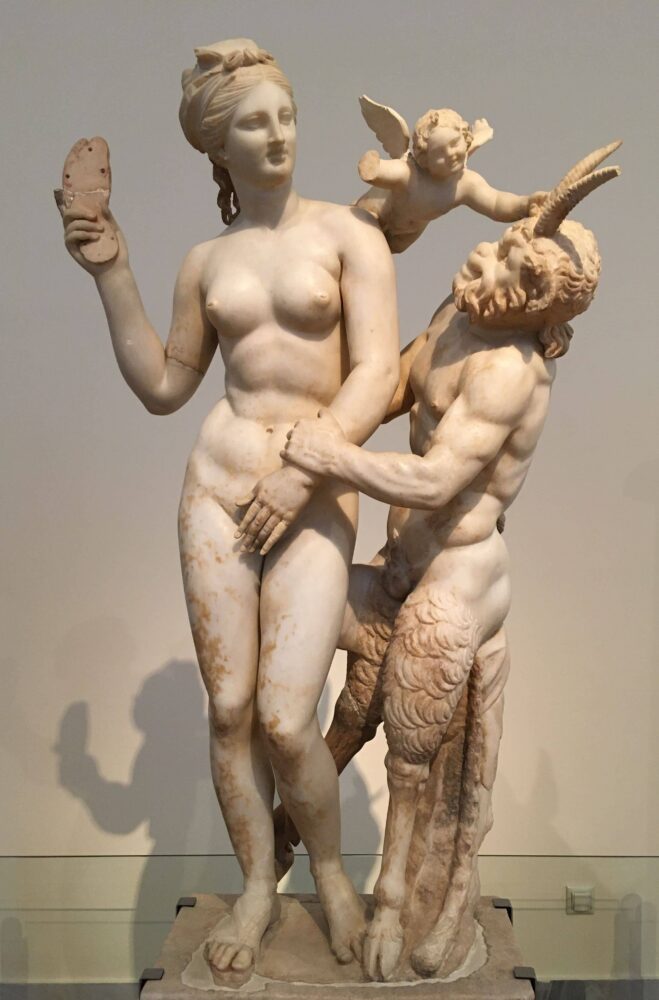
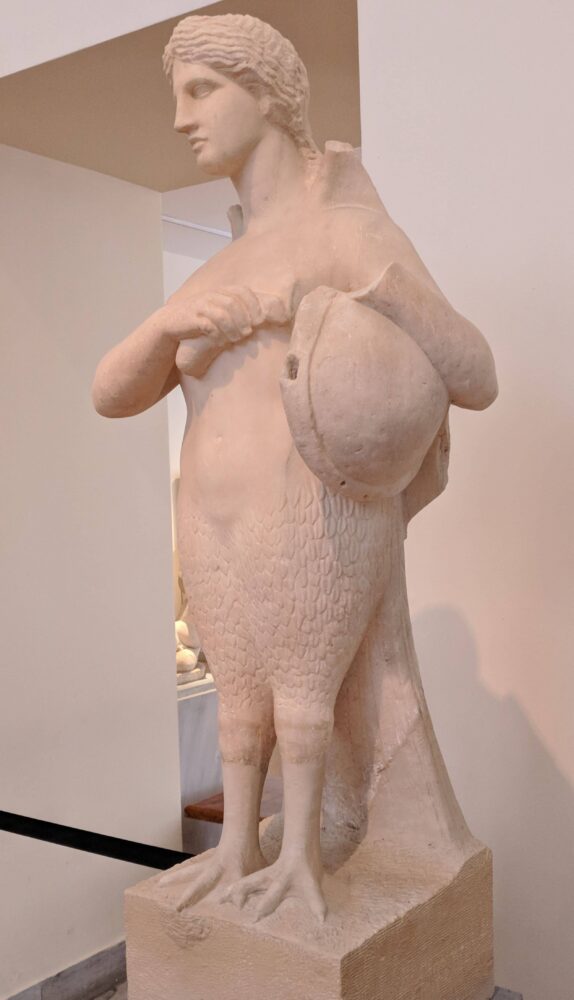
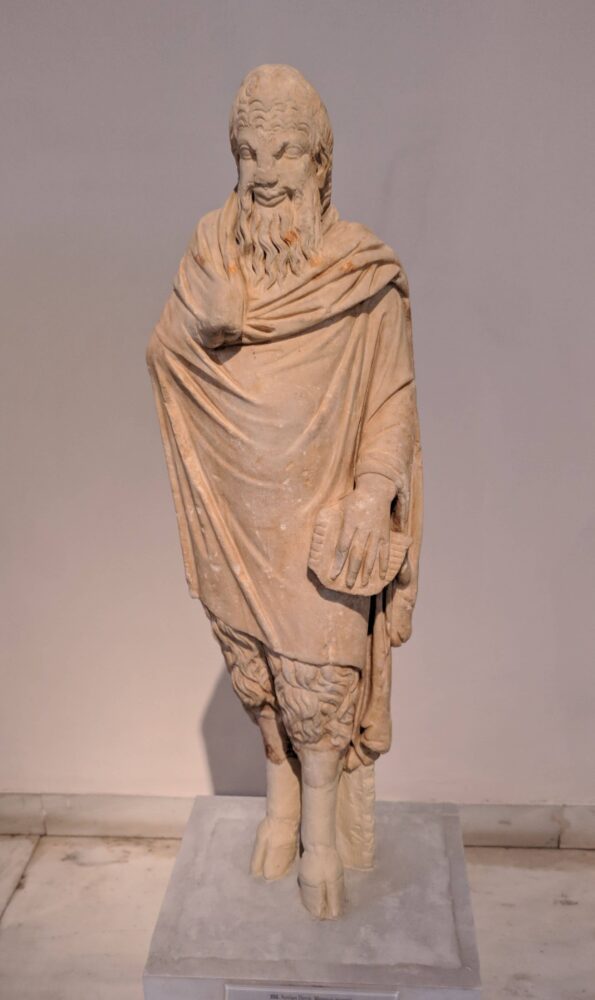
It was Homer who first mentioned Mount Olympus as the home of the gods.
It is likely that those who originally placed the gods on Mount Olympus lived in Northern Greece, in the shadow of this mountain. Olympus is also visible from the sea and, perhaps, the home of the gods was placed at the edge of the hitherto known northern world.
Most of the gods’ names are of Mycenaean origin. Nevertheless, Herodotus reports that the names of the gods came to Greece from Egypt.
Titanomachy: the battle between the Titans and the Olympian gods
In the beginning, there was nothing: no light, no land, no sea, no gods, no men. There was only Chaos.
From Chaos comes life. Gaia, born first, is a couple with Ouranos. Together, they created the mountains, the forests and the sea. The light spread everywhere.
In addition, Ouranos and Gaia gave birth to six sons and six daughters, the Titans. Ouranos feared that one of his children would seize power from him, so he kept them locked away deep in the Earth.
However, the youngest of the Titans, Cronos, managed to dethrone his father by force. Ouranos then put a spell on him, so that his own children would do the same to him. Cronos swallowed his children as soon as they were born.
His wife, Rhea, tried to save her last child, Zeus . She gave birth secretly in a cave on Crete. Instead of a child, she gave Cronos a stone wrapped in swaddling clothes to swallow.
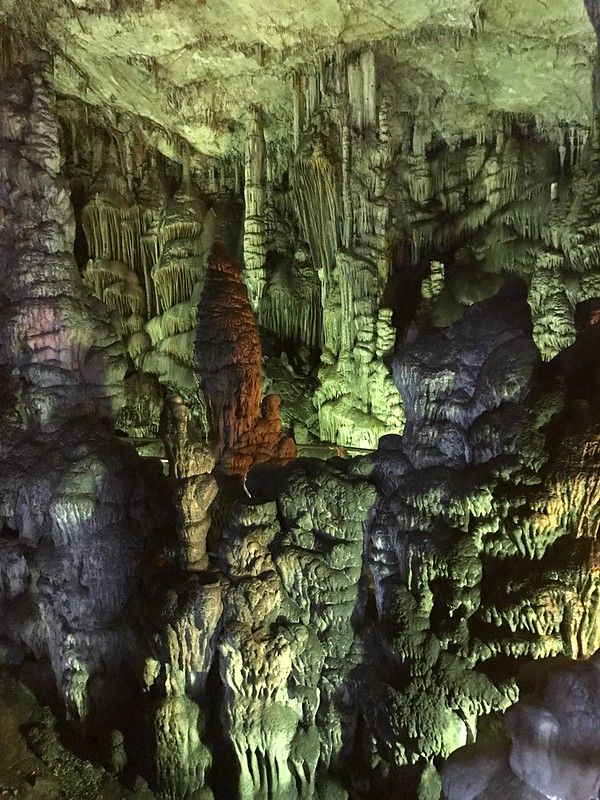
When Zeus grew up, he gave Cronos a magic drug to drink. From his belly came the children he had swallowed: Poseidon, Hades, Hera, Demeter and Hestia.
Having taken Zeus as their leader, they then waged war against Cronos and the Titans for world sovereignty. Titanomachy lasted ten years.
The gods emerged victorious and imprisoned the Titans in the depths of the earth, Tartarus.
Article written by Mania F.
More Greek mythology….
And even more articles on Greek history and culture, on Zeus, the god of Olympus, and on Poseidon, the Greek god of the sea.
